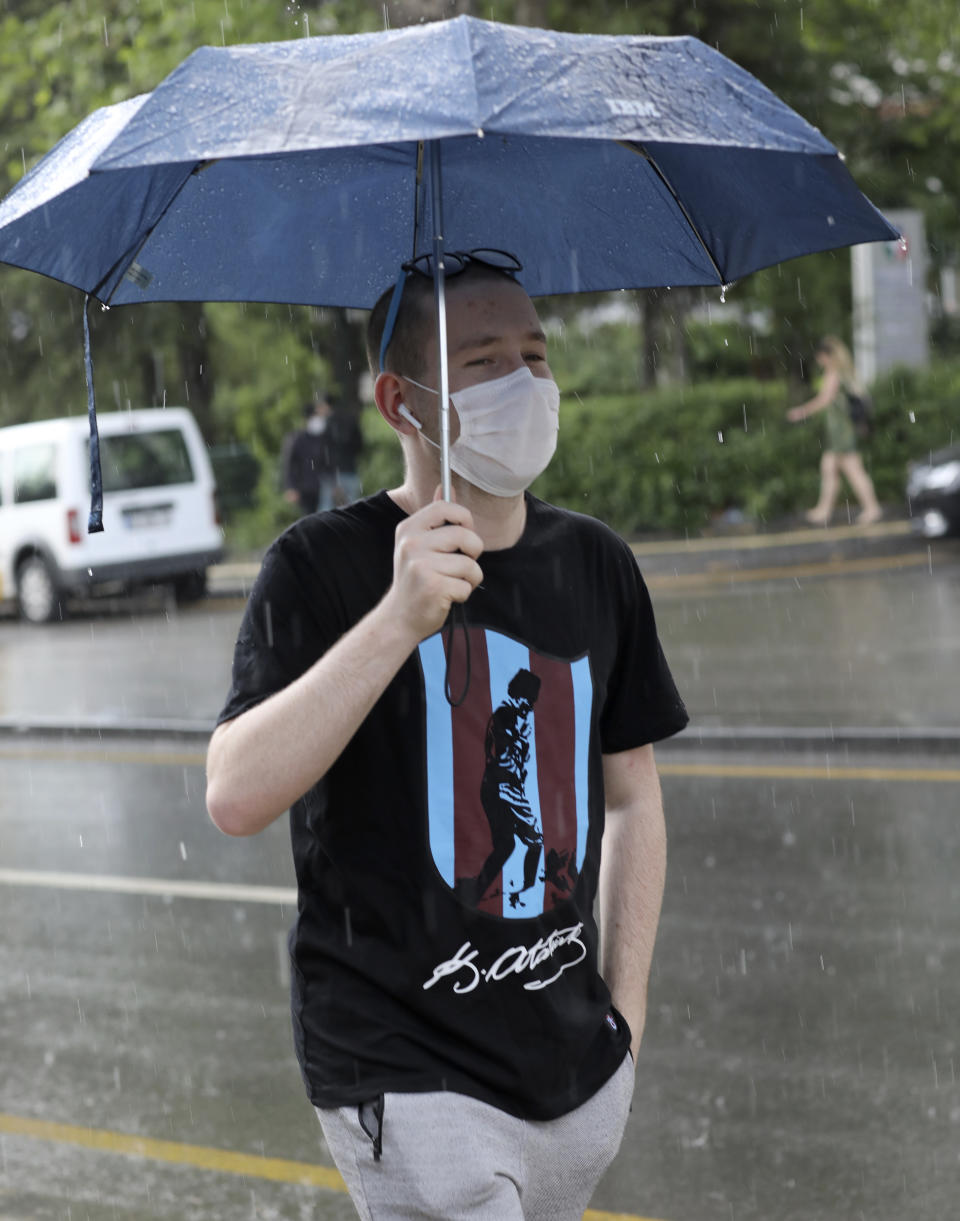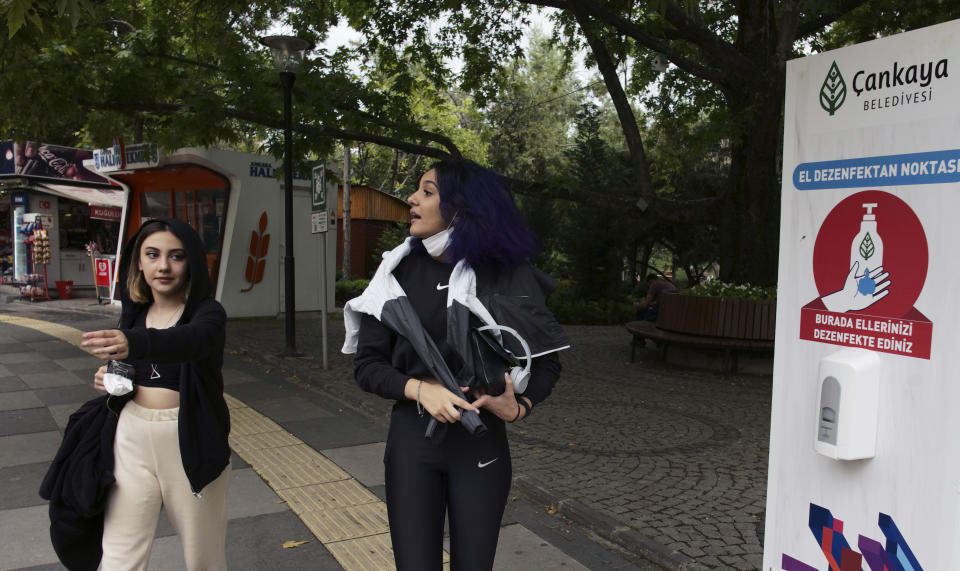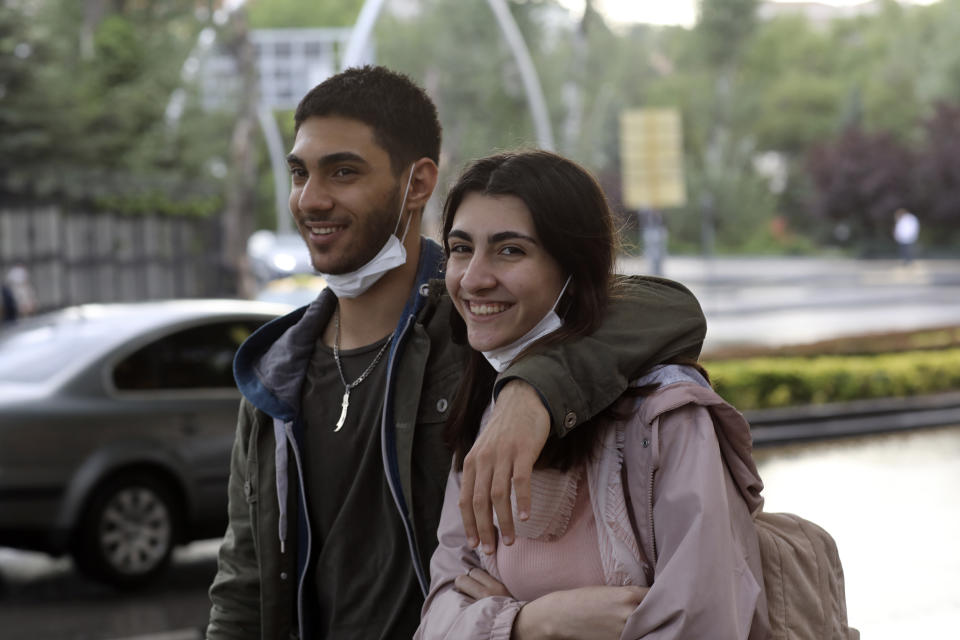Turkey says spike in virus cases is within 'expected limits'
ANKARA, Turkey (AP) — A spike in the number of the coronavirus infections in Turkey following the easing of restrictions is well within “the expected limits,” Turkey’s health minister said Wednesday, but urged the public not to flout social distancing rules.
Speaking to reporters following a meeting of the country’s scientific advisory council, Fahrettin Koca said the country has no plans to declare new stay-at-home orders to keep the numbers in check, but is considering expanding the mandatory wearing of masks — currently in place in about half of Turkey’s 81 provinces — to other regions.
Turkey witnessed an uptick in infections since June 12, after restaurants, cafes, gyms, parks, beaches, swimming pools and museums were authorized to reopen, inter-city travel restrictions were lifted and stay-at-home orders for the elderly and the young was lifted on June 1.
The number of fatalities, patients in intensive care and those who have been intubated have also slightly increased since the restrictions were lifted to get the struggling economy going again.
Experts have attributed the rise in the number of infections to large gatherings such as weddings, funeral wakes and parties to send off new conscripts starting their military service. Turkish media have been filled with reports of people ignoring social distancing precautions at such gatherings.
The number of confirmed daily cases, which hovered around 800-900, now come in at around 1,400-1,500.
On Wednesday, Koca reported 1,429 new infections in the past 24 hours, pushing the total number of cases to 182,727 and 19 fatalities. The death toll in the country now stands at 4,861.
“There is no surprise," Koca said of the resurgence of cases. "We are within the expected limit.”
He warned, however: "Not to exceed this limit is within your hands ... It’s in the hands of those who don’t go out without a mask and do their best to keep a distance.”
Turkey had enforced piecemeal measures to curb the virus’ spread — including weekend curfews and banning senior citizens and minors from leaving homes — instead of total lockdowns that it feared would harm its already troubled economy. An army of contact-tracers, ample testing and isolation had helped the country reduce infection rates.
Meanwhile, Koca said that initial results of an ongoing large-scale testing for coronavirus antibodies indicates that there is no herd immunity in the country.
Turkey began testing more than 150,000 people in 81 provinces this week to see how far the virus has spread. With around half of the sample population tested, the survey shows that less than 1.5 % of the population have been infected by the virus, the minister said.
___
Follow AP pandemic coverage at http://apnews.com/VirusOutbreak and https://apnews.com/UnderstandingtheOutbreak




